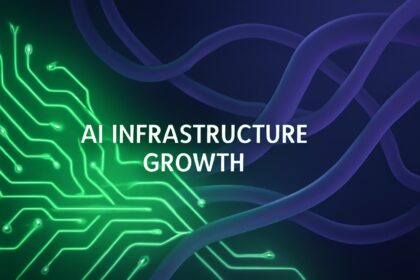Industry Leaders Collaborate to Combat Concrete Emissions
Concrete production, particularly cement manufacturing, accounts for approximately 8% of global greenhouse gas emissions—comparable to the annual emissions of the world’s third or fourth largest country, according to the World Economic Forum. This significant environmental footprint has spurred major players in real estate and technology to unite in pursuit of sustainable solutions. Amazon, Meta, and Prologis have joined forces to establish the Sustainable Concrete Buyers Alliance (SCoBA), a coalition aimed at accelerating the adoption of low-carbon concrete. The alliance is spearheaded by nonprofit organizations RMI (formerly Rocky Mountain Institute) and the Center for Green Market Activation.
SCoBA’s Strategy: Leveraging Collective Purchasing Power
Ben Skinner, manager of cement and concrete initiatives at RMI, explained that SCoBA’s objective is to channel investments into binding off-take agreements. These agreements will provide low-carbon cement and concrete manufacturers with the financial certainty needed to invest in costly decarbonization technologies and scale their operations. “Low-carbon cement and concrete are essential to decarbonizing the built environment,” said Keara Fanning, Director of Net Zero and Sustainability at Prologis, the world’s largest warehouse real estate investment trust. “This alliance will help bring next-generation solutions to scale for the benefit of our customers.”
Addressing Scale and Market Demand Challenges
Decarbonizing cement production requires significant retrofits to large-scale manufacturing plants, demanding substantial capital investment. Cement producers with net-zero commitments face reluctance to invest without clear market demand for low-carbon products. Conversely, buyers interested in reducing their carbon footprint struggle to source low-carbon cement due to limited availability and supplier hesitation. SCoBA aims to bridge this gap by aggregating demand and connecting members directly with producers of sustainable cement.
“We’re bringing together buyers with enough purchasing power to shift the market and enable suppliers to invest in decarbonization technologies,” said Skinner.
Innovative Book-and-Claim System to Overcome Geographic Barriers
To address logistical constraints, SCoBA employs a book-and-claim mechanism, a demand-side approach familiar in renewable energy markets. This system allows buyers to purchase environmental attribute certificates representing low-carbon cement without physically transporting the product across long distances. Skinner elaborated, “It doesn’t make sense for a buyer in New York to ship low-carbon cement from California. Instead, they acquire the environmental attributes of that cement, while sourcing the physical product locally.” This approach dismantles geographical barriers inherent in the complex cement and concrete supply chains, facilitating broader market adoption of sustainable materials.
Supporting Innovation: Brimstone’s Role in the Alliance
The alliance also supports innovative startups such as California-based Brimstone, which participated in the initiative by providing critical data. Brimstone’s CEO, Cody Finke, emphasized the significance of the partnership.
“Having some of the world’s largest companies unite to create a market for sustainable concrete is a huge win,” said Finke. “It accelerates our path to market, enabling our cement to be used in buildings, data centers, and infrastructure sooner.”
FinOracleAI — Market View
The formation of the Sustainable Concrete Buyers Alliance marks a pivotal step in mobilizing demand-side pressure to decarbonize one of the most carbon-intensive sectors globally. By aggregating purchasing power and employing innovative market mechanisms like book-and-claim, the alliance addresses both supply and demand challenges in sustainable cement production.
- Opportunities: Accelerated market adoption of low-carbon concrete; increased investment in decarbonization technologies; enhanced collaboration between large buyers and innovative producers.
- Risks: Potential delays in scaling production capacity; reliance on novel certificate trading mechanisms; geographic disparities in supply chain infrastructure.
Impact: This alliance is expected to positively influence the construction and real estate sectors by catalyzing sustainable material adoption, reducing carbon emissions, and fostering innovation in cement manufacturing.













